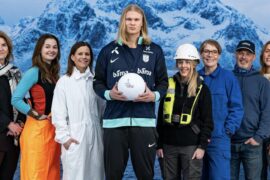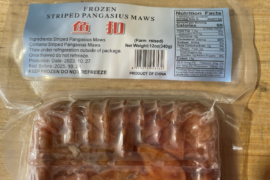Kvarøy Fiskeoppdrett, also known as Kvarøy Arctic, is Norway’s first salmon farm to be awarded Best Aquaculture Practices (BAP) certification, the Global Aquaculture Alliance announced on September 8.
Based on Norway’s Kvarøy Island in the Arctic Circle, the company is a third-generation family business founded in 1976. Two of its salmon farm sites, Movikodden and Selsøyvær, have attained BAP certification.
Kvarøy Arctic salmon products (whole fish, fillets, portions, frozen fish, skin packs, retail frozen packs, burgers and hot dogs) are currently available at regional distributors throughout the United States, serving restaurants and retailers including Fulton Fish Market, Co-op Food Stores, Whole Foods Markets and Disney Springs.

Kvarøy plans to pursue BAP certification for its remaining three farm sites as well as its processing plant, hatchery and feed mill to attain BAP four-star designation.
“It’s our intention to secure the full 4-star rating and we’re in the process of that review now,” said CEO Alf-Gøran Knutsen. “This is an important first step for our company to demonstrate our commitment to the highest sustainability standards, and an example that we hope our peers in Norway will follow.”
“We are very proud to attain BAP certification,” said Eirin Silvik, Kvarøy’s quality manager. “To be awarded BAP certification is a testament to our commitment to sustainable practices at our salmon farm sites. This would not have been possible without the hard work and dedication of our exceptional staff.”
Iain Shone, BAP’s director of market development-Europe, added: “These particular salmon farm certifications mark a significant first for us in Norway, and we’re proud to call Kvarøy Fiskeoppdrett a new BAP producer partner.”
Administered by the Global Aquaculture Alliance, BAP is regarded as the world’s most comprehensive third-party aquaculture certification program, with standards encompassing environmental responsibility, social accountability, food safety, animal health and welfare, and traceability. The program covers the entire aquaculture production chain – processing plants, farms, hatcheries and feed mills. Globally, 2,773 such facilities have been certified in 36 countries on six continents.






